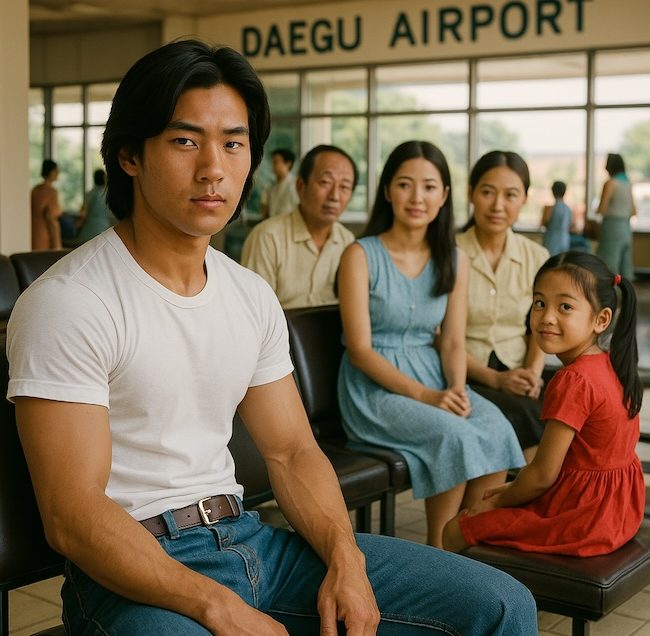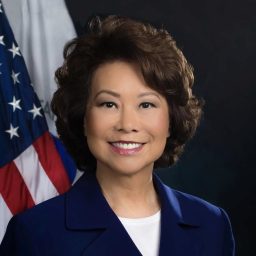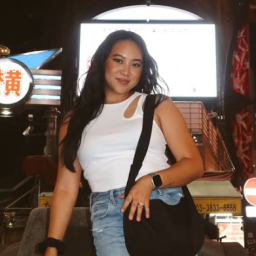
The complex network of identifications with people, places and events that make up identity takes a novel to capture. And here’s the first chapter of mine, The Summerset, written when I was in my third year at UCLA.
Hello, this is Tom Kagy with Unconventional Wisdom.
Today I’d like to talk about something I’ve been wanting to talk about but which is very difficult to prioritize because it’s a somewhat amorphous concept that we don’t think about all the time, but is sort of central to our lives. And by that I mean identity.
Over the years, I’ve come to see identity as sort of the operating system by which each of us operates. So in other words, it’s not just an issue or topic for Asian Americans or an ethnic minority. It’s really a topic for every single human being.
Of course, at the core of identity is all of our human qualities. But as you get toward the surface, I’d say the coloring would come from our more superficial but still very important ethnic, family, and various other types of identifications.
Identity is one of those topics that when you’re a very ambitious young person, you don’t really think about it. You’re focused more on getting into college, you know, doing well in school, graduating. So it wasn’t really until I was in college that I began to think about my identity.
And when I tried to sort of simplify my concept of my identity, I found that it wasn’t really possible to do that in one or two sentences. In fact, I think it actually takes a novel for anyone to actually elucidate their particular identity. So that’s what I did. I started writing chapters of a novel while I was in, I think in my second or third year of college.
And I was writing it because I actually had to produce something for my creative writing seminar, for my sort of the sub major of my English literature major. So I wrote a number of chapters during the, over the course of three separate creative writing seminars, which I had to qualify for and pass through in order to get a sort of a notation in my BA saying that I had majored in creative writing.
Since it’s really not possible for me to share my identity in great detail in a few sentences, I’ve decided it’s easier just to read from that novel. That novel is titled The Summerset. The words summer set are combined to be one word.
And here is Chapter One of The Summerset.
A voice announced to the jumbo jet load of sleeping passengers that we were crossing the international date line and that it was now the 21st of June, the first day of summer. The old man next to me stirred, blinked irritably and went back to sleep, probably deciding it was a hell of a thing to be awakened, just to be told today had become yesterday and tomorrow today.
Staring through the double layer of plexiglass since takeoff, I had been seeing Kimberley as I had left her at LAX. Now I saw the stars, sublime against the black stratosphere. I closed my eyes and tried to sleep.
Having been born into, for all practical purposes, an expatriate family, I was doomed to ply the Pacific like the trade winds, heading west come summer and back east to the states in the fall. Whenever an acquaintance would ask, so what have you been up to all summer? I would answer, I was in Korea. And the conversation would take an autobiographical turn while I explained that my family lived there because my father worked there for the US Army, that I was born there and had attended the American base schools there before starting high school stateside.
The acquaintance would go away misunderstanding, and I would come away feeling as if I had been withholding embarrassing truths about myself.
I had been determined to break precedent and spend that summer with Kimberly until, just as I was closing the textbooks of my sophomore year at UCLA, my mother called long distance with the news of my Korean grandmother’s death. I had agreed without hesitation to return for the funeral, though I knew that once there I would have to stay out the summer.
My grandmother and I once had great affection for each other, and past affection was sacred to me. Still, I had been saddened by the prospect of a summer separation, and in a reckless moment of grief, I had promised faithfulness to Kimberly, despite having caroused and hoarded nearly every night of every summer from the age of 15.
But after all, I loved Susan Kimberly Bradley. Or as I like to think of it, I was moved by her the way some people can be moved by old glory streaming against clear autumn skies. These may or may not be facets of the same emotion, but move seemed to describe best what the sight of Kimberly’s light brown page boy, sprinkling of freckles, and grey eyes that went clear to heaven did to me from the very first.
But after some consideration — I move you well, it’s pretty clear I don’t move you to the three simple words that mean anything! — I made a reluctant concession to convention and settled for love, a much inferior word and entirely overworked. At the airport, I had used that word for the second time to stem the flow from those eyes melting clear and of course it had the opposite effect.
The tears were to be savored, if not for the fact that more than a few drops were shed out of that unreasoning jealousy provoked by an unseen rival, particularly if that rival, like Beth, was once her lover’s lover.
It was a relief to get out and stretch at Haneda.
In one of those ubiquitous duty-free shops, I bought half a dozen postcards and filled them with portions of my message of love and longing, smiling at the thought of Kimberly’s pleasure at finding them in her mailbox one morning. The announcement was made for my flight for its final leg to Seoul, and I dropped the card into a mailbox feeling as if I were again taking leave of Kimberley.
Compared to the Trans-Pacific crossing, the flight from Honshu to Korea across the Sea of Japan, the East Sea to the Koreans, was only a hop. With my first glimpse of the peninsula, my heart quickened as it had each of the half-dozen times in summer’s past.
Sighting the California coast was as different from this as a handshake is from a kiss. Korea was for me the affection of mother, the indulgent, the past, and America, the example of father, the ambitious, the future. As the 747 crossed the eastern coastline and flew over the blue-green mountains toward Kimpo International, the rose tint of dawn faded leaving the blue sky of a dreary winter’s daydream.
Gazing down at the moving landscape, I felt it might awaken from its eons of repose and throb with the life force it had absorbed from the eastern sun. The jet banked in prelude to the landing ritual, and the yellow rays stretched across the rushing azure to warm my face.
With every swoop and bank, the ever-changing panorama of green hills and greener rice paddies blurred into the never-changing scene of childhood summers. The Boeing met the landing strip with a screech and a jerk, and I remembered to take a deep breath. A
fter the rigmarole of customs, I went to the domestic terminal for the flight to Taegu.
Having suffered for a dozen hours a scream of jet engines, I relished the cocktail of human voices. Groups of men talked with adolescent boisterousness, stamping their feet and clapping to accent the more notable repartee. Most were gray-suited businessmen with austerely trimmed hair gleaming with aromatic oils and glossy black shoes. Were it a few hours later, their breaths would have been sweet with alcohol. The few laboring class men didn’t speak as loudly, perhaps in deference to wealth. They wore drab, short-sleeved shirts and pants that were invariably ankle-length, as if their legs had just experienced a late growth. Their lean, limber bodies were burnt red-brown, and the compact muscles of their arms flexed visibly when they moved.
A stately family of four sat down across from me. The precocious-looking younger daughter, with a spirited ponytail, ogled me as if I had been provided by KAL for the amusement of waiting passengers. Pretending unwary nonchalance, I settled down to enjoy her reactions.
I knew that I was so fascinating because she couldn’t reconcile my apparently Korean face with my American clothing and collar-length hair. Strict Korean laws allowed male citizens only very short haircuts in those days. Wanting to share her discovery, Ponytail tugged at her sister’s arm.
The older girl was striking. She looked to be about 20 or 21. Her pale as lilac lips stayed parted in a vaguely dissatisfied pout. She tried to ignore her sister by staring straight ahead, as straight ahead as possible without staring at me, since I happened to be sitting directly opposite her. When I caught her eyeing me, Palelips made it clear that actually she had been engrossed in something fascinating that happened to be directly behind my head, even craning her neck slightly to let me know that my big fat head was blocking her view.
Hauteur was the intended attitude, but the quick curiosity of her sultry eyes and the manicured toes wiggling in her white high-heeled slippers compromised it into something more charming. I caught myself thinking unfaithful thoughts.
“Look how his hair hangs down,” said Ponytail. “He can’t be American because his hair is black. I bet he’s a Jap.”
“Stop staring at that man,” said her mother. I looked away to one side only to catch a small group of people studying me speculatively. When I turned back around, Palelips was giving her sister a fierce look and whispered I made out to be, “I’ll kill you, you little brat.
“Don’t worry,” said Ponytail, no longer bothering to whisper. “He can’t understand Korean.”
Palelips suddenly remembered that she had neglected to look through her purse for quite some time.
“Look, look!” said Ponytail, keeping her black mist of his eyes on me. “He’s looking at you!”
Pulling herself closer to her sister with an impish smile, she said, “He thinks you’re pretty.
Palelips leaned forward and appealed to her father. He blew out a mangled toothpick and burst into a low, throaty laugh. Seeing that she would get no help from him, Palelips got up and went to stand by the window.
The one-hour flight was aboard a remodeled four-engine propjob that had once served as a military transport. At times we flew along flocks of cumulus clouds whose shadows appeared to be small lakes riddling the dark mountains below, until the illusion was destroyed by some real lakes. Since most of the country was covered by mountains worn uniformly smooth with age,
I anticipated Taegu behind every range. Instead were nameless hamlets nestled in the shadowy V’s of the foothills like insects clinging to some tolerant beasts for their precarious existence, so different than their sprawling California towns. I wished Kimberly were with me. Her idea of Korea had been gleaned from old documentaries about the war.
Each time I tried to chip away at Kimberly’s prejudices with an apparently impromptu lesson in Korean culture, she had listened politely and even asked a few questions, giving me the hope that perhaps this time I had gotten through. Until the next time she asked if there were elevators in Korea or if Koreans rode on ox carts.
Once, while preparing for another assault on her undiminishable stockpile of misinformation, I had run across a series of publications released by Imperial Japan. In one issue was a large photograph with the caption, “Koreans drinking beef blood.”
The maple-lined streets of Camp Walker Base were quiet and empty except for a few GIs dressed in summer khakis. I passed the row of ugly pea-green barracks, the small white chapel, and the pool where I had worked as a lifeguard the past summer. Some younger kids on bicycles waved as they rode past as if they had seen me just yesterday.
No doubt the teenagers were at work loafing at their summer jobs. I cut across the golf course to the neat rectangular arrangement of pastel duplexes bordered by impeccable lawns kept that way by a small army of Korean houseboys.
Only the maid was at home. She told me that my mother and brother had gone to make funeral arrangements.
“Where’s Grandma?”
She led me to what was nominally my room and left me at the door. The only light in the room was the three candles at the head of the gray coffin, which had been left open. As I approached it, my mind kept returning to the past September when Grandma had cried as I was going back to college. Tears had trickled down her wrinkled brown cheeks, many more tears than I had thought the old woman could shed. And she had said she would not live to see me again.
I hesitated a moment before continuing toward the coffin. I had never seen death. The white Korean dress seemed to give off a pale light of its own. Grandma’s snow-white hair was pulled back severely and held by a silver pin at the back. To create the illusion of health, eternal health, they had powdered her hollow cheeks. Grandma’s eyelids were irresolutely closed as if she were only resting her eyes, and I half expected her to open them and smile, a slow joyous smile, at seeing me again.




Leave A Reply